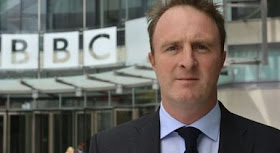Rebecca Traister in The Cut on an altercation between Harvey Weinstein and her boyfriend after she asked a question he didn't like: "Such was the power of Harvey Weinstein in 2000 that despite the dozens of camera flashes that went off on that sidewalk that night, capturing the sight of an enormously famous film executive trying to pound in the head of a young newspaper reporter, I have never once seen a photo. Back then, Harvey could spin — or suppress — anything; there were so many journalists on his payroll, working as consultants on movie projects, or as screenwriters, or for his magazine."
Tina Brown in the New York Times: "Harvey spent most of the hours of his working day ensuring that all the bad stories went away, killed, evaporated, spun into something diametrically its opposite. It was a common sight outside a Harvey opening party to see one of his publicists trapped in a car on the phone, spinning — spinning the dross of some new outrage into gold...When I founded Talk magazine in 1998 with Miramax, the movie company Harvey founded with his brother Bob, I also took over the running of their fledgling book company...It was startling — and professionally mortifying — to discover how many hacks writing gossip columns or entertainment coverage were on the Miramax payroll with a 'consultancy' or a 'development deal'."
| How The New York Times broke Weinstein story |
Amol Rajan@amolrajanBBC on Twitter: "Hey you guys who hate the mainstream media. It’s thanks to @nytimes that Ailes and now Weinstein are exposed. Courageous, patient reporting."
Roy Greenslade on his Ipso blog: "What is crystal clear is that the future of journalism depends on publishers securing a guaranteed form of income. And the best hope lies in recouping money from the two major Silicon Valley giants, Google and Facebook, which use newspaper journalistic content while attracting a huge share of available advertising...It is vital that Google and Facebook are persuaded of the benefits of sharing some of their profits with established news providers...I can accept the loss of newspapers (just about). What I cannot countenance is the loss of the journalism they have provided for 160 years and more. "
James Harding in an announcement to staff that he's leaving the BBC, as reported by Media Guido: “There is some journalism that the BBC, for all its brilliance, can’t, and probably shouldn’t, do. And that’s what I want to explore: I am going to start a new media company with a distinct approach to the news and a clear point of view. I know I will enjoy the chance to do some more journalism of my own and, at such a critical time, I’m seriously excited about the prospect of building a new venture in news.”
- David Yelland on Twitter: "Sign of a digital era when an editor leaves to make and build news not work for the owner of a press or studio..."
Albert Read, managing director of Condé Nast Britain, quoted in the Guardian on why monthly magazine Glamour was switching to a digital first strategy with just two print editions a year: “Today’s Glamour consumer moves to a different rhythm than the one who bought the magazine when it launched in 2001. It is a faster, more focused, multi-platform relationship."
Private Eye editor Ian Hislop in The Times [£] after a judge rejected a Herts Police request that the magazine hand over a list of subscribers in three counties after a joke cut out from its pages was sent to a force employee: “I was surprised when the police contacted us over this, really surprised when they insisted that they were serious and absolutely amazed when they went to court over it. What was not in the least surprising was that the judge threw the case out.”
John Harris in the Guardian: "Even partisan commentary can be rooted in the principles of good journalism, so long as it does not ignore uncomfortable facts, blindly offer support to parties or leaders, or distort actuality to score political points. More than that, though, the idea of journalism as a route to the truth is every bit as worthwhile as it ever was. But it is also under threat. In the Facebook age, outlets that value the idea of dispassionate inquiry and dogged research are feeling the pinch, while a great ocean of polemic, often written for nothing and barely interested in the world’s endless complexities, grows ever larger."
Owen Jones in the Guardian: "In this year’s election, four out of 10 voters just opted for a Labour party offering an unapologetically socialist platform. It is a travesty that the ideas represented by that manifesto remain fringe opinion in the British press. Our media has a straightforward choice. Cater for the growing demand for dissenting views – or be challenged by new media outlets that do."
Donald J. Trump on Twitter: "Why Isn't the Senate Intel Committee looking into the Fake News Networks in OUR country to see why so much of our news is just made up-FAKE!"
Trump speaking in the Oval Office, as reported by The Hill: “It is frankly disgusting the press is able to write whatever it wants to write, and people should look into it.”
Former New York Daily News gossip writer Lloyd Grove on Trump in the Columbia Journalism Review: "His current cold war with the press—featuring name-calling, antagonism, and bitter feuds—runs counter to a media strategy that served Trump well his entire adult life. Through a combination of ego, ruthless energy, laser-like focus, utter availability, and even charm, he controlled the narrative about himself for the better part of four decades—especially in the New York tabloids, of which I was a part—and turned his name into a valuable commodity. Now he has lost that control, and Trump simply has no idea how to respond."
Cotswold Life in an editorial: "It may come as a terrible shock to those who live in their own ‘Hate the Daily Mail’ bubble, but working class hero John Lennon was actually a reader of that much-reviled (and very successful) newspaper. The evidence comes at us direct from 1967 and the lyrics to A Day in the Life from the ground-breaking Sergeant Pepper’s Lonely Hearts Club Band album. On January 7 of that year, the Mail carried a report about the death of a friend of Lennon’s, Tara Browne, who drove into the back of a lorry at 106mph in Kensington. 'He blew his mind out in a car...' That same day’s newspaper also carried a story about there being 4,000 potholes in the town of Blackburn, Lancashire. So the Mail helped pen some famous Beatles’ lyrics. Now there’s not many people know that..."
[£] =paywall
Trump speaking in the Oval Office, as reported by The Hill: “It is frankly disgusting the press is able to write whatever it wants to write, and people should look into it.”
Former New York Daily News gossip writer Lloyd Grove on Trump in the Columbia Journalism Review: "His current cold war with the press—featuring name-calling, antagonism, and bitter feuds—runs counter to a media strategy that served Trump well his entire adult life. Through a combination of ego, ruthless energy, laser-like focus, utter availability, and even charm, he controlled the narrative about himself for the better part of four decades—especially in the New York tabloids, of which I was a part—and turned his name into a valuable commodity. Now he has lost that control, and Trump simply has no idea how to respond."
Cotswold Life in an editorial: "It may come as a terrible shock to those who live in their own ‘Hate the Daily Mail’ bubble, but working class hero John Lennon was actually a reader of that much-reviled (and very successful) newspaper. The evidence comes at us direct from 1967 and the lyrics to A Day in the Life from the ground-breaking Sergeant Pepper’s Lonely Hearts Club Band album. On January 7 of that year, the Mail carried a report about the death of a friend of Lennon’s, Tara Browne, who drove into the back of a lorry at 106mph in Kensington. 'He blew his mind out in a car...' That same day’s newspaper also carried a story about there being 4,000 potholes in the town of Blackburn, Lancashire. So the Mail helped pen some famous Beatles’ lyrics. Now there’s not many people know that..."
[£] =paywall










No comments:
Post a Comment